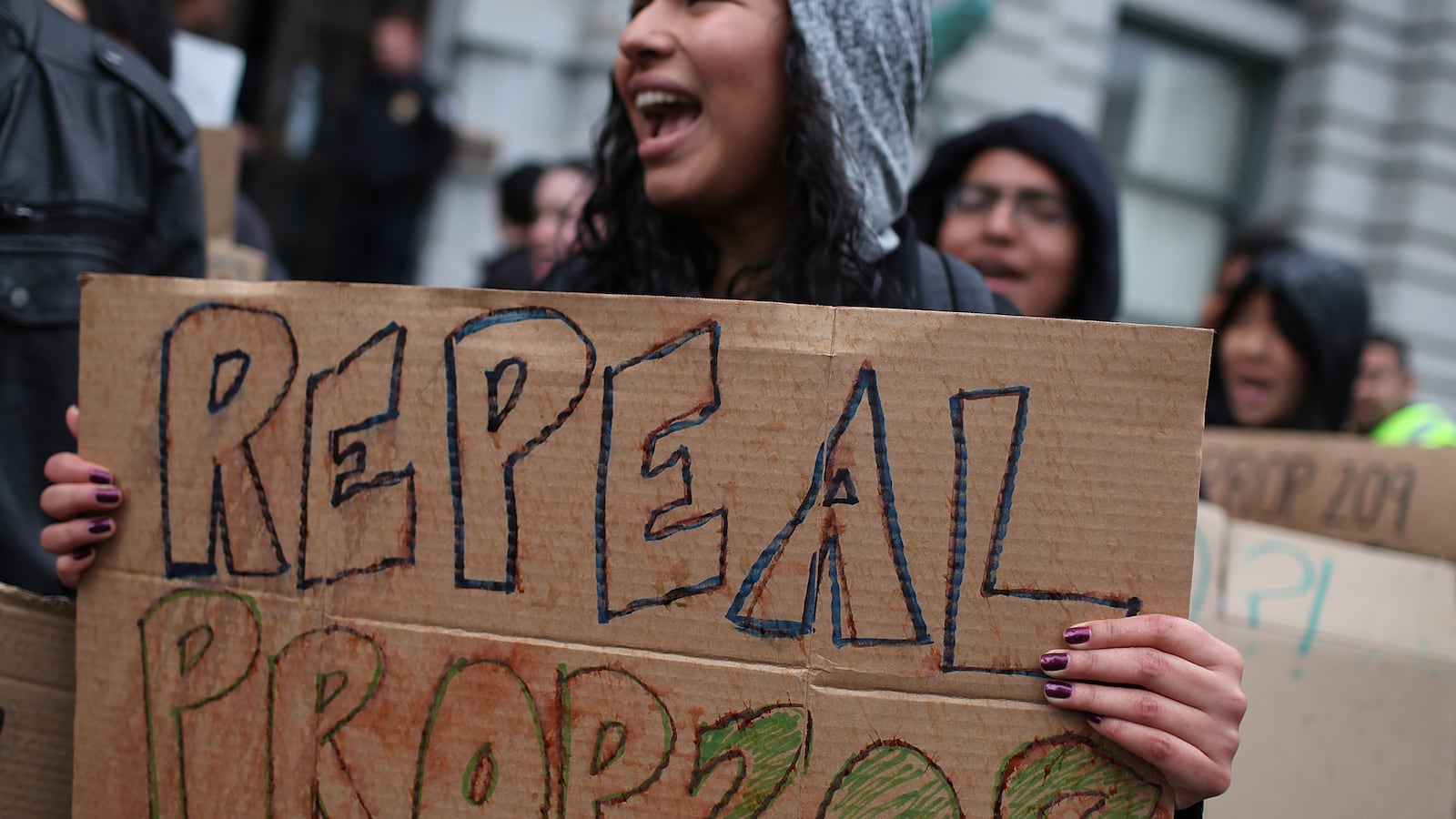Fewer issues inflame political passions in my home state of California than affirmative action. Since Proposition 209 was adopted in 1996, the state has been prohibited in using an individual’s race, sex or ethnicity in public education, contracting, and employment decisions.

Depending on your point of view, this was either emancipation from state-sponsored discrimination based on race, or a return to the days when qualified minority and women candidates were excluded from consideration. I won’t re-litigate the issue in its entirety here, but the passion and emotion shown by proponents and opponents of the law have remained strong for nearly 20 years.
Returning home to the Bay Area last week, I was surprised to open the newspaper and read that the California legislature was looking to overturn the ban on racial preferences. No surprise: with strong Democratic majorities in the state assembly and the state senate, and with Jerry Brown having been elected again as governor, the move to me seemed like a foregone conclusion.
Except that it wasn’t. Very quietly, a group of Asian-American legislators (I prefer to use the term ‘Americans’ without racial identification) caucused and threatened to withdraw their support as their constituents were afraid that it would imperil the ability of their children to be admitted to public colleges and universities administered by the state of California. At the heart of the issue was the fear that favoring other ethnic students to promote diversity would dilute the ability of Asian students to be well represented in the California university system.
Suddenly an issue to overturn a ban on racial preferences championed by many on the left ran into opposition from their own perceived political supporters. While the measure had previously passed through the state senate, the push to put a referendum before California voters on whether affirmative action could be used for admission to public schools died when it became clear the bill would no longer pass – due to opposition from many in the Asian-American community.
Why? Since Proposition 209 was adopted 18 years ago, enrollment of Asian students has soared within the University of California system. According to The San Jose Mercury News last week, “Asian-Americans make up about 38 percent of UC undergraduates and have a high rate of freshman admission to its nine undergraduate campuses -- 73 percent in 2013, compared to 63 percent of all in-state applicants.”
The irony here is that those favoring diversity and the use of race as a factor for university admission are against race-blind policies – except for when members of one preferred ethnic group might be harmed at the expense of others not bearing their same skin color. In this case, Asian-American legislators were under pressure from their constituents to keep their admissions rates high lest their numbers become diluted by black, Latino and other ethnic minorities.

This is madness. Every student should be taught in primary and secondary school based not on the color of their skin but on their ability to reap the value of an education. That a group of Asian-American politicians should bow to pressure from constituents to keep a higher percentage of “their” students enrolled in public schools than admit more students from other ethnicities demonstrates why a race blind system is necessary by state actors. Isn’t it racism to attempt to discriminate against one group of students to keep higher numbers of Asian-Americans enrolled in the UC system?
Late last year, the U.S. Supreme Court considered a Michigan case regarding the ability of Michigan voters to ban affirmative action programs via referendum – exactly what the California legislature sought to overturn. The case, Schuette v. Coalition to Defend Affirmative Action is one that is certain to reverberate around the country once the decision is announced later this spring.
While the intention of the California legislature to overturn state-sanctioned use of race and ethnicity is clearly well intentioned, it reveals what many conservatives fear: one group of people will be treated differently under the law by the state rather than all parties being treated equal regardless of skin color.
Let us all strive to ensure that all of our children are given the opportunity to achieve the American Dream. Those from lower socio-economic demographics must be provided the tools and ability to learn as their wealthier classmates are afforded. But for a government to reward certain students while penalizing others based on the color of their skin is not only wrong, it is reprehensible. A group of California legislators looking to protect “their own” based on race and ethnicity shows us why this is true.





